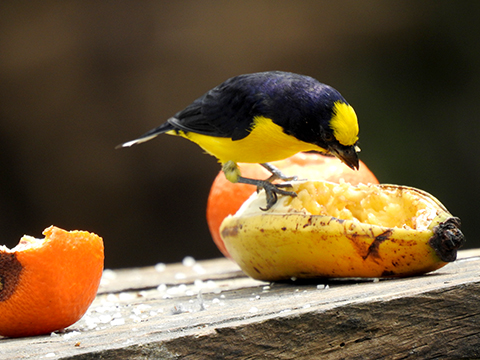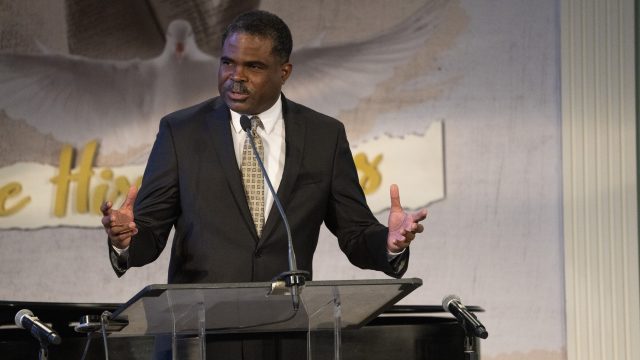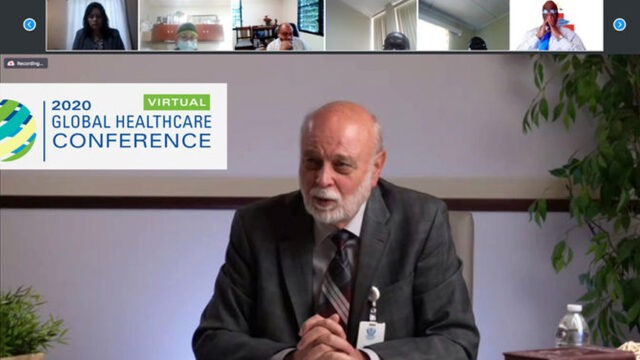Why not now start now?

The stay-at-home orders in the context of the current pandemic have created unexpected challenges: a sudden and rapid increase in distress hotline calls, a dramatic rise in the use of alcohol and pornography, and a surge in domestic violence.1 According to the Census Bureau, the pandemic has pushed the number of Americans displaying symptoms of anxiety or depression to 34 percent.2
But another activity has also grown—birdwatching. App downloads related to birding (the modern term for birdwatching) have doubled, and visits to crowd-sourced bird observation websites have spiked.3 People trapped in a small geographical area are looking out their windows and enjoying what they see.4
Birding shines in simplicity; all one needs are a field guide and binoculars. It’s remarkably diverse and adaptable, from simply watching the hummingbirds at a backyard feeder to searching for new birds we have never seen. People can go birding in the city, in the countryside, on the ocean, or even at night (“owling”). Observing birds also provides enjoyment during Sabbath hours. Whether chasing a black-backed woodpecker through the woods near a lake, or simply recording what we see flying or perched outside our bedroom windows, birding brings adventure. And it’s not just an activity for older people—people of all different stages in life are captivated by birds!
Birding Benefits
Jesus used birds as illustrations, referring to their foraging behavior (Matt. 13:4), their roosting habits (Matt. 8:20), and their breeding activity (Matt. 13:32). “Look at the birds of the air” (Matt. 6:26),5 He said (even though His hearers did not have binoculars). Why would He encourage us to observe birds?
Birds tell us something about God. In the classic Steps to Christ, Ellen White tells us, “The lovely birds making the air vocal with their happy songs . . . testify to the tender, fatherly care of our God and to His desire to make His children happy.”6 In other words, when we see the attractive plumage or hear the pleasant vocalization of a bird, we should think two things: (1) God cares about me and will provide for me; and (2) God wants me to be happy. In today’s troubled setting, personally hearing these messages brings relief and peace.
Birds speak about our personal worth. Speaking of what Smithsonian calls “the most common bird in the world”7—sparrows—Jesus says, “Not one of them falls to the ground apart from your Father’s will” (Matt. 10:29). “Of how much more value are you than the birds?” (Luke 12:24). When we observe birds—appreciating their intricately designed color patterns, listening to their songs and calls, noticing their behaviors, standing or walking in their habitat—we prepare ourselves to understand and experience these statements by Jesus. Our personal worth, says Jesus, “much” exceeds the value of these amazing creatures for which God cares so much.
Observing birds brings peace and serves as a welcome distraction. We find joy and blessing outdoors when we take breaks from the busyness and stress of life and appreciate natural things—the white fields of flowers nodding in the breeze, the cheerful swallows darting by without a care. Even if only for a short time, as people prone to the ups and downs of life, we notice a marked mood improvement—just by allowing birds and the natural world to divert us!8
Observing birds brings a sense of wonder and pleasure. Solomon wrote that “the way of an eagle in the air” is “too wonderful for me” (Prov. 30:18, 19); he attributed this mystery to God, and cherished a sense of wonder that God was bigger and smarter than he was. Even though today we understand the Bernoulli principle (the science of how a wing flies), who sees only bland physics when watching an enormous eagle soaring freely? “Let the songs of the birds and the beauties of nature awaken holy and grateful feelings in your hearts and lead you to adore your Creator.”9
Observing birds brings perspective. Stephen Shunk writes about an earthquake he experienced in San Francisco a few years ago. With the building shaking, he and his terrified, anxious coworkers raced outside. “The first thing I saw was a gull, flying effortlessly through the parking lot and alighting on a lamppost, just as it had done dozens of times before. It was unfazed by this stretching of the Earth’s crust. For a moment, I escaped with the gull to a familiar world . . . where I am surrounded by nature.”10 Birds are not aware of the COVID-19 pandemic, and they are happily foraging, migrating, and singing, just as they always have.
Social Connections
Birding also provides an occasion for family togetherness through shared experiences. Outings are opportunities for us to spend time together and make fantastic memories, especially when we travel to places where many new birds await us. These excursions are also opportunities to be Christian witnesses to fellow birders by our polite, friendly, and cheerful demeanor. We often get the opportunity to share carefully selected religious tracts as well.
Benefits Available to All
Interestingly, we notice that many non-Christian birders with whom we associate experience and appreciate many of these same benefits—although from an entirely different perspective. “It’s really good for the soul,” says popular naturalist and TV host Phillip Torres.11
Some time ago the two of us took an all-day ocean trip to points beyond the continental shelf, looking for unusual seabirds. The boat crew included a number of expert experienced guides, including a Harvard Ph.D. graduate. As we shared many discoveries and a lot of beauty that day (including a whale that breached by our boat, and two types of albatrosses that landed near us), a small bond grew between us. However, when we responded to a question about occupation with, “We work with a group of 800 churches,” an immediate, awkward silence fell like a gavel. We sensed their discomfort with religion of any kind. Someone muttered a statement with political overtones, and we felt like proverbial fish out of water, even with nothing but ocean around us. (A short mention that the woman of our house would soon be teaching a plant-based cooking class—an obvious point of common ground—brought an immediate return to cordiality and engagement.)
God has made available to anyone the peace, the sense of freedom and wonder, the delight, and the perspective brought by spending time in nature observing birds. However, we have realized that without a belief in and love for God, these secular nature lovers stop short of the full experience. We wish that they could understand the deeper significance—that a personal God cares about us and wants us to be happy.
Go Outside and Enjoy
“God has given us these precious things as an expression of His love,” “to please and gratify us,” and “He means that we shall have pleasure in them.”12 Why not take Jesus’ advice during the COVID-19 pandemic, and look at the birds?
1 See abcnews.go.com/Politics/calls-us-helpline-jump-891-white-house-warned/story?id=70010113; medscape.com/viewarticle/930039; insider.com/porn-views-have-increased-worldwide-since-onset-of-covid-19-2020-3; psychologytoday.com/us/blog/making-sense-chaos/202005/why-the-increase-in-domestic-violence-during-covid-19.
2 Compare washingtonpost.com/health/2020/05/26/americans-with-depression-anxiety-pandemic/?arc404=true.
3 Gillian Flaccus, “Bird-watching Soars Amid COVID-19 as Americans Head Outdoors,” online at apnews.com/94a1ea5938943d8a70fe794e9f629b13.
4 Andy McGlashen, “Birding Is the Perfect Activity While Practicing Social Distancing,” Audubon Magazine, online at audubon.org/news/birding-perfect-activity-while-practicing-social-distancing.
5 All Bible texts are from the New King James Version. Copyright ã 1979, 1980, 1982 by Thomas Nelson, Inc. Used by permission. All rights reserved.
6 Ellen G. White, Steps to Christ (Mountain View, Calif.: Pacific Press Pub. Assn., 1892), p. 10.
8 In The Ministry of Healing (Mountain View, Calif.: Pacific Press Pub. Assn., 1942), Ellen White argues for spending time in nature and observing our avian friends. “Unconsciously the mind becomes peaceful” (p. 264). “Roaming through the fields and the woods, picking the flowers, listening to the songs of the birds,” promotes mental health (p. 236).
9 Ellen G. White, My Life Today (Washington, D.C.: Review and Herald Pub. Assn., 1952), p. 177.
10 Stephen Shunk in Good Birders Don’t Wear White, edited by Lisa White (Boston, Mass.: Houghton Mifflin, 2007), p. 224.
11 See in apnews.com/94a1ea5938943d8a70fe794e9f629b13.
12 Ellen G. White, This Day With God (Washington, D.C.: Review and Herald Pub. Assn., 1979), p. 241, emphasis added.








